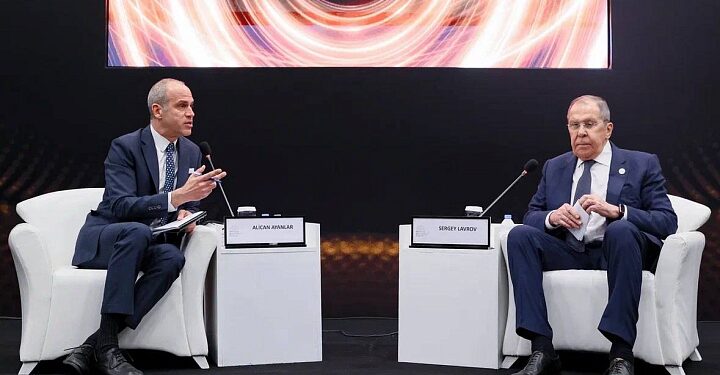by Miceál O’Hurley
ANTALYA (TÜRKIYE) — Russian Foreign Minister Sergey Lavrov took the only question from non-Russian media from Diplomacy in Ireland – European Diplomat Editor-in-Chief Miceal O’Hurley during a session at the Antalya Diplomacy Forum 2024. 3-Days prior to the annual forum, hosted under the auspices of the President of Türkiye Recep Tayyip Erdoğan, Transnistria’s soviet-styled Congress of Deputies made an appeal to the Russian Federation for “protection” from Moldova. The ambiguous language of the resolution was alarming but fell short of a request for annexation. O’Hurley asked Lavrov what the world community might expect from Russia in terms of leadership to ensure that the situation does not result in yet another request for annexation and conflict.
O’Hurley’s question for Lavrov was the first time he had been asked directly about Transnistria’s call for “protection” from Russia following the extraordinary request from the Congress of Deputies. Lavrov avoided answering the question directly and instead launched into a criticism of Moldova and Ukraine and their treatment of ethnic Russians following the demise of the Soviet Union some 30-years ago. Moscow’s response continues to be uncertain though their rhetoric is inflammatory.
Question from Miceál O’Hurley (Diplomacy in Ireland - European Diplomat): The Transnistria Congress of Deputies has asked for assistance from Russia. What can we expect from Russia in terms of leadership to make sure it doesn’t escalate into a request for annexation and further conflict? Sergey Lavrov (Foreign Minister of Russian Federation): The question should be directed towards those responsible for eliciting such a statement from the Transnistrian parliament. First of all, to the Chisinau regime, which is following in the footsteps of the Kiev regime: cancelling everything Russian, discriminating against the Russian language in all spheres and, together with the Ukrainians, putting serious economic pressure on Transnistria. People lived in a blockade for many years after the Soviet Union ceased to exist. They had no opportunity for movement. More than 200,000 people there have Russian passports. This is well known. What conclusion did we draw? We have already taken action. We called on the regime in Chisinau (led by Romanian citizens who make no secret of the fact that they want Moldova to join Romania) to cease obstructing the negotiation process. The Transnistrian Moldovan republic's leadership has been talking about this for a long time. The 5+2 format allowed for the consideration of Transnistrians’ interests in the context of preserving the territorial integrity of Moldova. It is precisely the resumption of this mechanism that Tiraspol is calling for. The Romanian leadership in Chisinau is trying to permanently dismantle this format.
Russian Occupation of Moldova’s Transnistria
Transnistrian separatists commenced armed conflict directed against Moldova after the collapse of the Soviet Union in an attempt to establish an independent, pro-Russian state. The Russian separatists’ declared independence in 1990 from the Moldovan Soviet Socialist Republic and then from the Soviet Union in 1991. These conflicts were followed by Russian separatists in Transnistria commencing aggression against the newly emerged Moldovan Government in Chișinău in May 1992. By July 1992 a sustained cessation of hostilities has endured with only minor, sporadic incidents occurring to date.
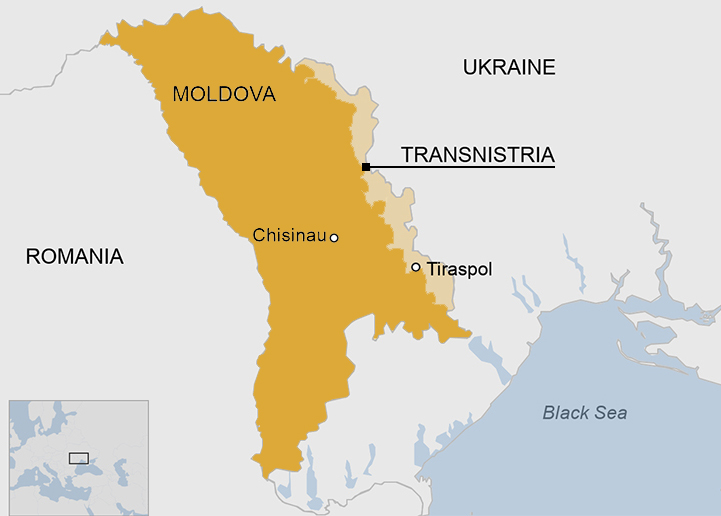 With their capital in Tirspol the self-proclaimed Pridnestrovian Moldovan Republic (PMR) claims to be an independent state although it is not recognised in international law. No United Nations member state, including Russia, has recognised Transnistria and it legally remains a sovereign region of Moldova. Only two equally spurious Russian-occupational regimes in Georgia’s Abkhazia and Tskhinvali regions recognise the Transnistrian separatists’ claim of statehood.
With their capital in Tirspol the self-proclaimed Pridnestrovian Moldovan Republic (PMR) claims to be an independent state although it is not recognised in international law. No United Nations member state, including Russia, has recognised Transnistria and it legally remains a sovereign region of Moldova. Only two equally spurious Russian-occupational regimes in Georgia’s Abkhazia and Tskhinvali regions recognise the Transnistrian separatists’ claim of statehood.
Transnistria consists of a narrow strip of land on the Western border of Ukraine and has a population of just over 364,000 people of various ethnic backgrounds, the majority self-identifying as Russian.
In addition to Transnistrian militias Russia maintains a military garrison of approximately 1,500 soldiers in Transnistria despite having pledged in November 1999 at the OSCE Istanbul summit to withdraw its forces from Moldova giving a draw-down date of 31 December 2002. Despite being explicitly agreed to in the OSCE Istanbul summit documents Russia has never fulfilled its commitment to withdraw its forces from Transnistria. On 22 June 2018, the UNGA adopted resolution (document A/72/L.58) requiring the immediate and unconditional withdrawal of Russian military forces and armaments from the Republic of Moldova. On 15 March 2022, the Parliamentary Assembly of the Council of Europe formally recognised Transnistria as Moldovan territory being illegally occupied by Russia.
Tiraspol’s Requests of Russia Not New
Following Russia’s illegal annexation of Crimea in 2014, the Speaker of the Supreme Council of the Transnistrian Congress of Deputies, Mikhail Burla, requested by means of a letter that the Russian Federal Assembly facilitate the Russian Federation’s annexation of Transnistria. Burla’s request was transmitted and accepted as a personal appeal lacking the authority of Tiraspol’s Congress of Deputies. Russia has not facilitated the request for annexation in the meanwhile.
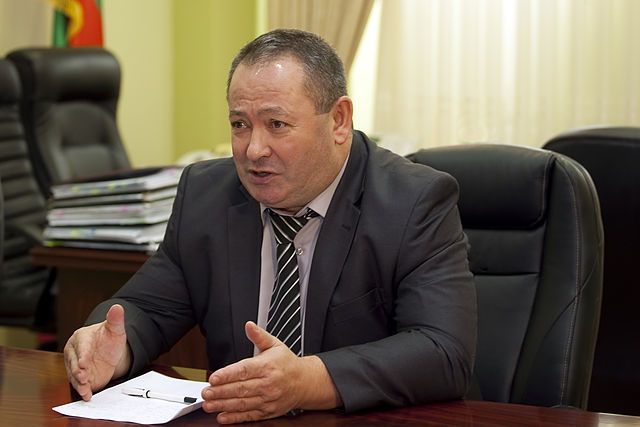
Then Moldovan President Nicolae Timofti told Russia it would be a “mistake” to attempt annexation upon Burla’s request. “This is an illegal body which has taken no decision on inclusion into Russia,” Timofti told a news conference. “I believe that Burla’s actions are counter-productive and will do no good for either Moldova or Russia. And if Russia makes a move to satisfy such proposals, it will be making a mistake,” he added.
Before last week Transnistria’s Congress of Deputies had been in recess since 2006. Last week it re-convened for the sole purpose of passing resolutions requesting Russian Federation “protection” from what it described as pressure from Moldova. The Congress of Deputies, in-fact, passed multiple resolutions, each similar in nature, addressing them individually to the Russian Federation, UN, OSCE, the European Parliament, and the Red Cross, asking them to intercede to curtail the “pressures” emanating from Chisinau. Responses from the UN, OSCE, European Parliament and Red Cross are currently under consideration. Their ability to intercede is questionable rendering the resolutions more symbolic than actionable.
A Transnistrian referendum in 2006 tallied a 97.2% vote in favour of joining Russia. Recent polling conducted between October 2018 and February 2019 indicated only 37.1% of polled Transnistrians desired to become part of Russia. It remains uncertain what, if any, impact Russia’s war on Ukraine has had in re-shaping those figures. Independence is the more popular choice amongst Transnistrians than annexation with Russia.
Context of Request
The Congress of Deputies request for “protection” arises in the context of the Tiraspol administration’s dire financial difficulties in propping-up their failed regime in the aftermath of Russia’s full-scale invasion of Ukraine in 2022. A direct consequence of Russia’s aggression in Ukraine was Kyiv’s decision to seal its border with Moldova’s Transnistria region. Cut off from the trade route through Ukraine in the aftermath of Russian aggression Moldova became the only transit point for goods entering or leaving Transnistria. Although Russia had hoped to spearhead a land-bridge between the Black Sea and Transnistria by occupying the Ukrainian port city of Odessa within days of commencing their full-scale invasion of Ukraine the Armed Forces of Ukraine turned-back Russian advances and have successfully defended Odessa since. Today, the only access to Transnistria remains through Moldova.
Since 1992, Chișinău had taken pains to accommodate Transnistria in the hopes of quelling further violence. However, on 1 January 2024 Moldova announced that Transnistria’s access to the European market must comply the framework of Moldova’s 2013 Free Trade Agreement with the EU. In order to create a fair and level playing field for all economic agents Chișinău now requires businesses in Transnistria to conform to Moldovan tax policy and their corresponding EU trade obligations, measures Transnistrians claim are injurious to their self-proclaimed sovereignty rights.
Prior to this year Chișinău had essentially foregone taxation requirements on Transnistrian trade as a way of maintaining the status quo. However, given Russia’s campaign of aggression against its neighbours, including annexations, occupation, assassinations, poisonings, spying, espionage and attempts to interfere in the domestic politics of European states, especially by cyber-attacks and disinformation sustained through spy-bots and social media manipulation, Moldova has decidedly turned towards the West and sought membership in the European Union. Consequently, parity with EU tax policy was inevitably going to become a point of contention with Tiraspol as Moldova fast approaches EU accession.

What Moldova describes as a policy to create a “level playing field” in line with European economic policies and obligations the regime in Tiraspol is calling an “economic blockade“. An estimated 67% of Transnistria’s trade takes place with the EU making the enforcement of taxes upon its trade with Moldova and the EU a particular sensitive issue for Transnistria’s economic viability. Romania, Poland, Germany, Italy and Slovakia are Transnistria’s largest trading partners and all are within the EU. By contrast, in 2022, commerce between Transnistria and Russia (excluding Russian gas which was the largest commodity Transnistria previously imported) contracted by approximately 22% year-on-year. Russia’s share in Transnistrian exports declined by 6% to approximately $81.5m representing only 11% of Transnistria’s total exports.
Without Russia’s economic support Transnistria would long ago have collapsed. The “protection” Transnistria seeks, though vague in nature, is not for physical protection but for mere economic advantage. Recent polling indicates Transnistrians vastly prefer independence over annexation into Russia with only marginal support for re-unification with Moldova. However, hoping to exploit the situation, pro-Russian official Transnistrian media sources, social media accounts centred in Transnistria and Russian-bots have all significantly increased messaging claiming other “pressures” from Moldova, even at times invoking purely hyperbolic claims of attempting genocide lending credence to concerns that Transnistria is making a hard-play for continued Russian involvement if not doing their bidding directly.
Is Tiraspol’s Request a Serious Threat?
Initially, the Government in Chișinău attempted to play-down the request, as did Kyiv. The situation has changed somewhat over the past week. According to a 22 February statement from Moldova’s Office for Reintegration, “We are watching the situation closely, but there’s no evidence to back up the claims being made [in the media for annexation]”. Ukraine’s response was even more blunt. According as 26 February comment from Kirilo Budanov, Ukraine’s Military Intelligence Chief, “Nobody will be asking to join the Russian Federation. [Any rumours about Transnistria] do not correspond with reality. This has all the hallmarks of a deliberate misinformation campaign designed to destabilise the region.”
While early indications are the request from Tiraspol is more psychological than territorial in nature, Russian disinformation campaigns have been weaponised into hybrid-warfare prior to their incursions in Georgia, Ukraine, Syria and historically in Moldova. Russia’s frustration with the Western tilt of its neighbours, even the election of Sviatlana Tsikhanouskaya as President of Belarus, a startling act which required Russian puppet Alexandr Lukashenko to steal the election by force, have thwarted Russia’s plans to expand its sphere of influence and territorial expansion.
Contrary to Russia’s claims, the West’s hardened response has been the direct result of Russia’s policy of attempting to rebuild a “historical Russian Empire” following the collapse of the Soviet Union. Russian President Vladimir Putin has called that event, “the greatest geopolitical catastrophe of the century” and has pursued a policy of claiming that Russian citizens who found themselves outside of the borders of Russia upon the demise of the Soviet Union should be re-incorporated into a “historic Russia“.
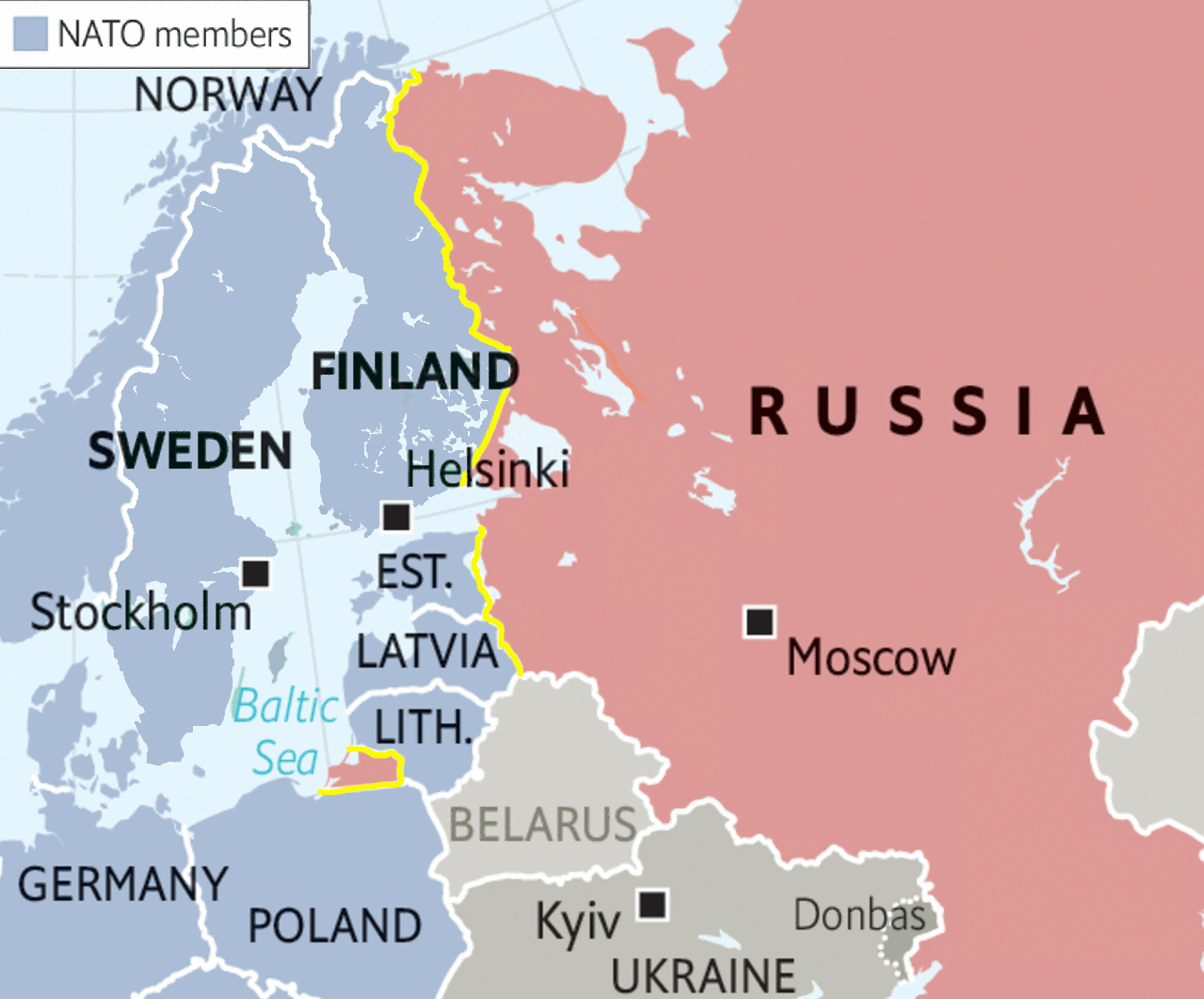
One unintended consequence of Russian aggression in Moldova, Georgia and Ukraine has been the enlargement of NATO as States seek to enhance their defensive posture. When Finland joined the Alliance in April 2023, NATO’s land border with Russia more than doubled. Yesterday, Sweden officially joined NATO even further increasing NATO’s defensive posture in the face of Russia’s bellicose activities. Bosnia and Herzegovina along with Georgia are NATO aspirants and Ukraine is now decidedly hurtling towards NATO membership. Russia’s gambit of aggressive conduct, hybrid-warfare and armed incursions has resulted in a more cohesive and enhanced NATO presence. Nonetheless, Russia claims victimhood by citing NATO member growth as an encroaching on Russian security.
Putin has also pursued a path of destabilising former Soviet states in the hopes of keeping them under a Russian sphere of influence such as with Belarus, Hungary, Bulgaria and Slovakia. It remains uncertain to what extent Russia will increase such tactics in Moldova. Where ‘influence‘ has not worked Russia’s pattern of fomenting separatist uprisings in Georgia, Ukraine and historically in Moldova resulted in bloody occupations and attempts at annexations. It is unlikely that Russia has the logistical or military capabilities to attempt an annexation of Transnistria as part of a “historic Russia” leaving hybrid-warfare and the hopes of destabilisation as their best hope of establishing a pro-Russian government in Chișinău.
Russian Interference in Moldova’s Domestic Affairs
In late 2022, Moldova’s Russian-backed Shor party began organising public protests against the government in Chișinău. Long over-reliant on Russia for the majority of its energy supply, Moldova’s President Maia Sandu and the Western aligned liberal parties in Government have sought to quickly diversify Moldova’s energy dependence. Russia acted to cut-off Moldova from energy imports in 2022 which caused a spike in prices and reduction in supply that threatened to destabilise Moldova. Within 6-months Moldovans were paying close to 68% of their incomes on energy alone creating fertile ground for stirring political unrest.
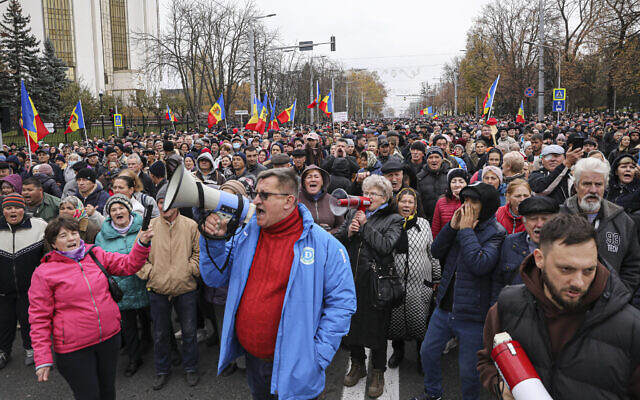
Funded largely by Ilan Shor, a Russian-aligned Moldovan businessman who fled to Israel after defrauding the Moldovan banking system of more than €1 billion, the Shor party attempted to sew unrest by capitalising on the chaos caused by Russia’s manipulation of energy supplies. The nearly un-ending protests culminated in February 2023, with Sandu publicly warning that Russia was plotting to send military-trained saboteurs and agitators disguised as civilians to destabilise and hopefully topple her decidedly pro-Western government. Sandu told a press conference, “[Russia] was expected to cause major discontent among the population and lead to violent protests“.
Intelligence gave proof of these activities. During this period some 57-persons from Russian aligned States, including a group of ‘football fans’ from Serbia and ‘boxers’ from Montenegro were denied entry into Moldova on the grounds of State security and national interests. Speaking to the BBC, Rosian Vasiloi, head of Moldova’s Border Police, said, “It’s very clear that Russia is an aggressor state,” noting that since Russia’s full-scale invasion of neighbouring Ukraine the security situation in Moldova was, “different now – it’s a mix of threats from inside and outside Moldova“.
Tiraspol’s request for “protection“, although primarily driven by taxation implications, was unique in being rather open-ended and vague. However, it follows-on a period of internal and external pressures from Russian interests and may be part of a larger campaign designed to topple Sandu and thwart Moldova’s EU accession. Chișinău and Kyiv’s initial analysis that the request need not necessarily be seen as a precursor to annexation and military interference in Moldova’s internal affairs may prove, at least for the moment, to be correct. However, the spike in social media misinformation, claims of ethnic persecution of Russians in Transnistria and enhanced cyber-hacking points to a larger campaign effort by Russia.
What Are Moscow’s Intentions?
Responding to the question from Diplomacy in Ireland – European Diplomat with ominous messaging, Lavrov resorted to language he had similarly used just prior to Russia’s invasion of Ukraine’s Donbas and Crimea in 2014 and again in the hours before Russia’s full-scale invasion of Ukraine in 2022. Lavrov avoided answering the question directly, instead taking the opportunity to blame “the regime in Chișinău for doing what the regime in Kyiv is doing in isolating Russian elements [of their population]“, accusing both Moldova and Ukraine of putting Russians in their countries “under pressure… living there for a long time after the dissolution of the Soviet Union”.
In asking for the world to ponder, “what is the motivation” for the Transnistrian Congress of Deputies’ request for “protection“, Lavrov’s used the terms “regime“, technically describing those governments as ‘authoritarian’, when referring to both Chișinău and Kyiv. Both Moldova and Ukraine are democratic countries while the Russian Federation is universally regarded by scholars and policy-makers as a ‘authoritarian state’ even lacking in the semblance of a ‘managed democracy’.
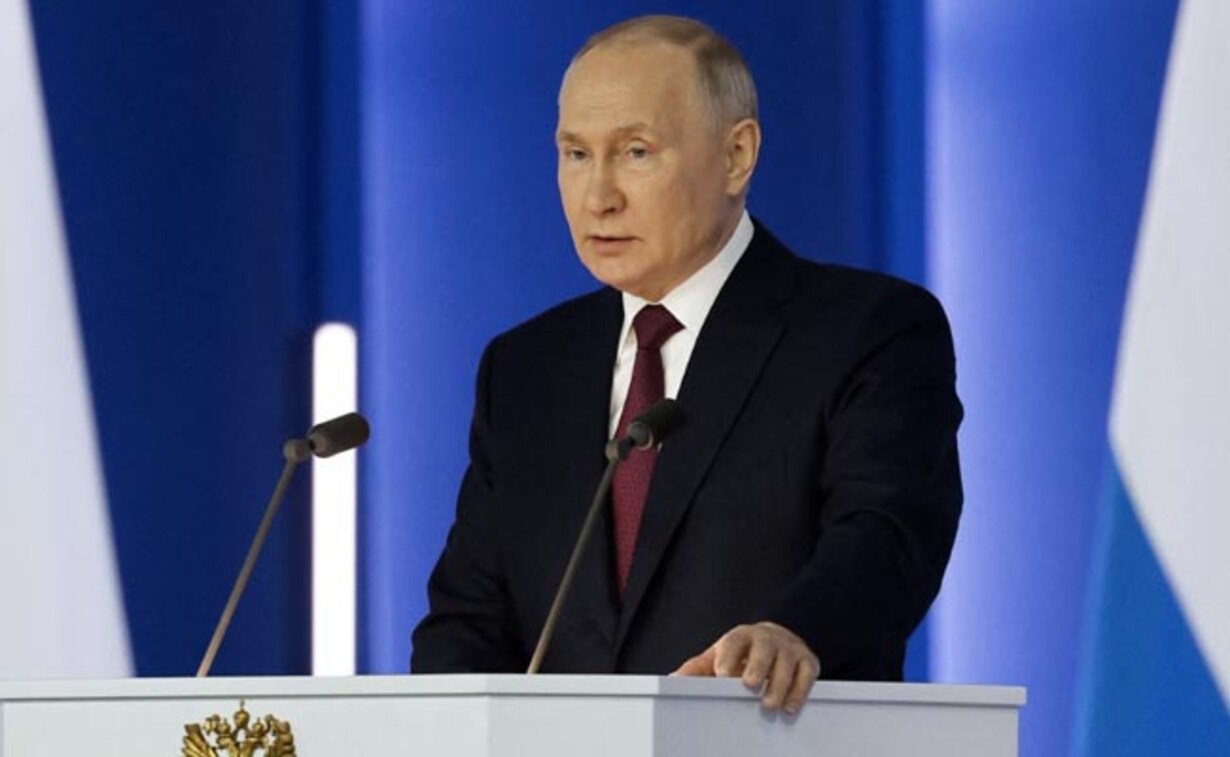
Russia’s consistent reference to their government while reducing their neighbours to “regimes” has featured in their rhetoric about what they see as the illegitimacy of their neighbours. In 2023, Putin revoked a decree previously signed in 2012 which recognised Moldova’s independence.
Russia has variously asserted they believe former Soviet States should have remained part of the Russian Federation claiming it to be the legitimate successor to the Soviet Union. Russia has often claimed such States like Georgia, Moldova and Ukraine, where they maintain military occupations, are illegitimate entities in that they are not “real countries”. Alternatively Moscow has claimed Russian occupation and annexation are required for the protection of ethnic Russians following often dubious claims of discrimination and repression.
Concerns remain that Russia may exploit Transnistria’s request for “protection” as another attempt to de-stabilise the Moldovan government. Russia has already been engaged in a rather muscular hybrid-warfare against Moldova in anticipation of a presidential election that coincides with a referendum that will decide Moldova’s entry into the EU. Alexandru Musteata, the Director of Moldova’s Information and Security Service (SIS) used a press conference to war that Russia will attempt to create social and political unrest in Moldova, especially in the Transnistria region, in the lead-up to the vote, “This February, the Deputy Secretary General of NATO, Mircea Geoană, declared that Russia will continue to be ‘“very aggressive, not only militarily”’ but also ‘“in everything that means the spectrum of hybrid war’”. Musteata described Transnistria’s request of Russia for “protection” to be, “a form of psychological and political pressure”.
This week the SIS released a report claiming an intelligence conclusion that Russia plans to launch vast hybrid attacks against Moldova through 2024-2025 in an attempt to try to bring Moldova back under Moscow’s sphere of influence. The Transnistrian Congress of Deputies request for protection may be a component of that campaign.
What is at Stake for Moldova?
Sandu is seeking a new mandate in the upcoming Presidential campaign. The election for Moldova’s presidency is being run concurrently with the EU Referendum and Moldova’s future in the West depends on the outcome. “There is information about an attempt to compromise the referendum on European integration, the presidential elections, to denigrate institutions and candidates who will promote the idea of European integration,” Musteata said.
Moldova’s very future is at stake and all evidence points to Russia using all of its resources short of ‘boots on the ground’ to achieve its goals of toppling Moldova’s Western oriented government, frustrating the country’s accession into the EU and maintaining Transnistria for its strategic value.
































